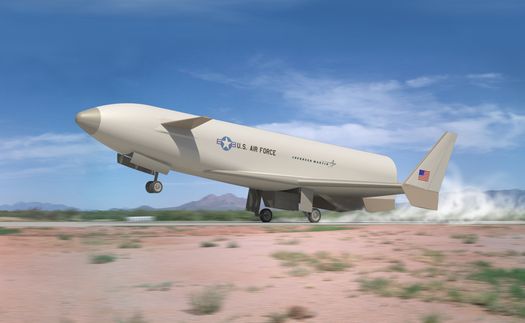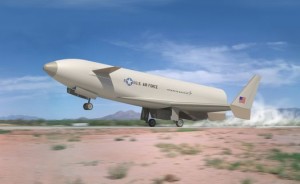
On December 5th, the United States Air Force (USAF) announced it had selected two space firms to develop a flight demonstration vehicle named Pathfinder as part of its 250 million USD Reusable Booster System (RBS) Flight and Ground Experiments program. Lockheed-Martin and Andrews Space will compete for individual tasks throughout the 5-year, indefinite-delivery/indefinite-quantity (IDIQ) contract, launched from the Wright-Patterson Air Force Base.
John Karas, Lockheed-Martin Space System’s Vice President and General Manager of Human Spaceflight, said “We are very pleased to be selected by the Air Force to support them on the Reusable Booster System program. The innovative technologies and capabilities that RBS will provide are vital to meeting the needs of the Air Force and the nation for more affordable, responsive spaceflight in the future.” Jason Andrews, president and CEO of Andrews Aerospace, said “We are honored that the USAF has selected Andrews for this important effort. Andrews has been supporting the US Air Force and the RBS program through various system design and hardware development efforts and we look forward to leveraging those achievements.”
One key concept to be tested by the Pathfinder aircraft is the “rocket-back” concept, in which the first stage of a reusable launch system would use its main rocket engines to reduce its velocity, and then glide back to the original launch site and perform an automated horizontal landing. Rocket-back capabilities would eliminate the need for retrieval of reusable first stages, which has the potential to greatly decrease the turnaround time for reusable launch vehicles and allow for much more frequent launches. When the RBS contract competition first opened in March 2011, it was estimated that the RBS program could reduce launch costs by up to 50% at a nominal launch rate of 8 launches per year.
The RBS program is a key part of the USAF’s effort to develop an “operationally responsive” space program. The orbital component of the program, the secretive X37-B unmanned shuttle, was launched atop an Atlas 5 rocket on March 5, 2011, and recently exceeded its expected on-orbit endurance of 270 days. The RBS program aims for the first flight test of the Pathfinder to occur in 2015, with the RBS launch vehicle replacing existing launch vehicles some time after 2035.
Lockheed Martin, based in Bethesda, Maryland (US), employs 126,000 people worldwide. Its Space Systems division, grossing 8.3 billion USD in sales in 2010, includes launch services, satellite manufacturing, and missile development. Andrews Space Inc was founded in 1999 and is based in Tukilawa, Washington (US).
The video below shows the launch of the X37-B experimental shuttle atop an Atlas V rocket.
[youtube http://www.youtube.com/watch?v=5UrZ2E8Plzo]


















































































































![A trajectory analysis that used a computational fluid dynamics approach to determine the likely position and velocity histories of the foam (Credits: NASA Ref [1] p61).](http://www.spacesafetymagazine.com/wp-content/uploads/2014/05/fluid-dynamics-trajectory-analysis-50x50.jpg)



Leave a Reply